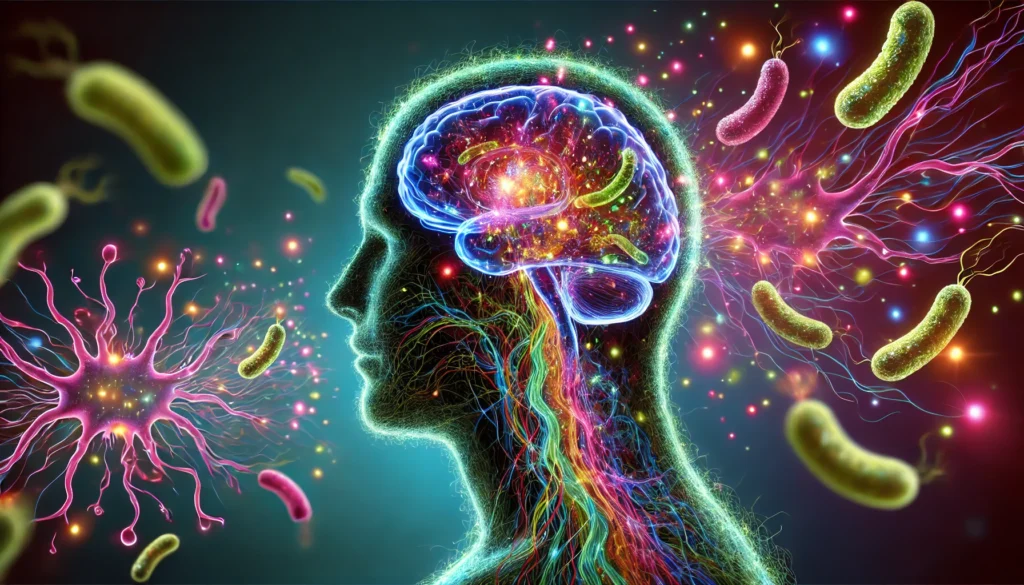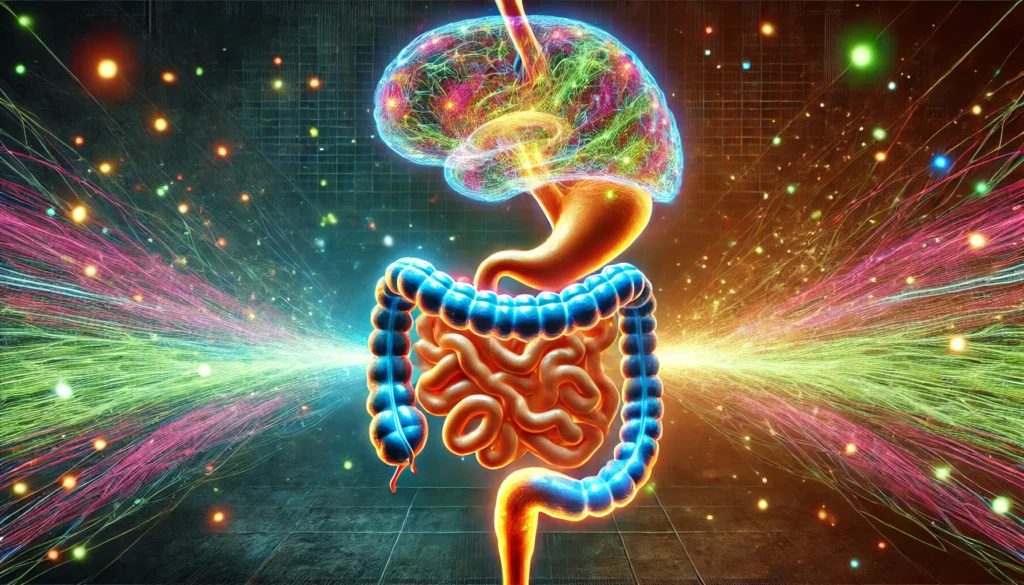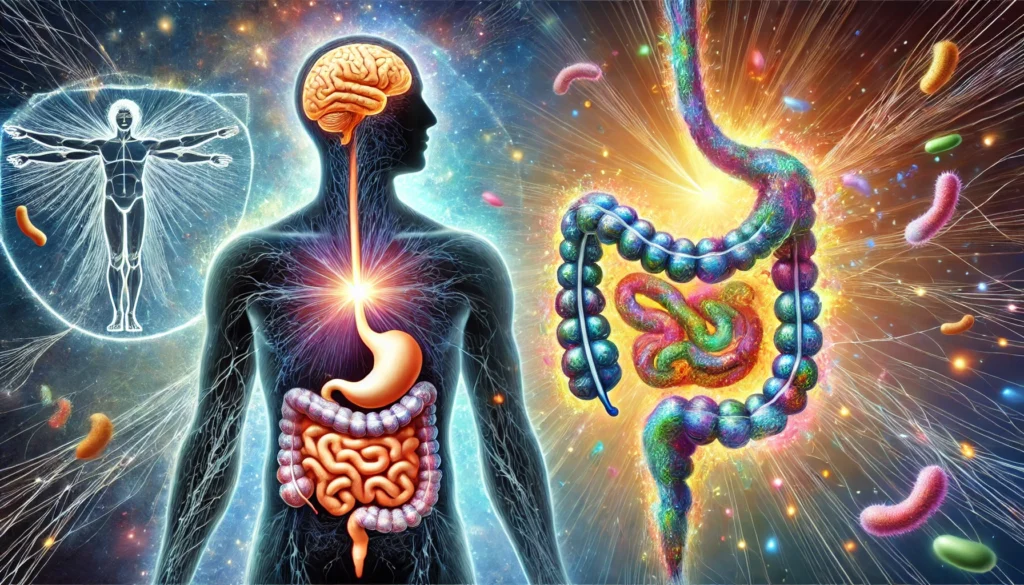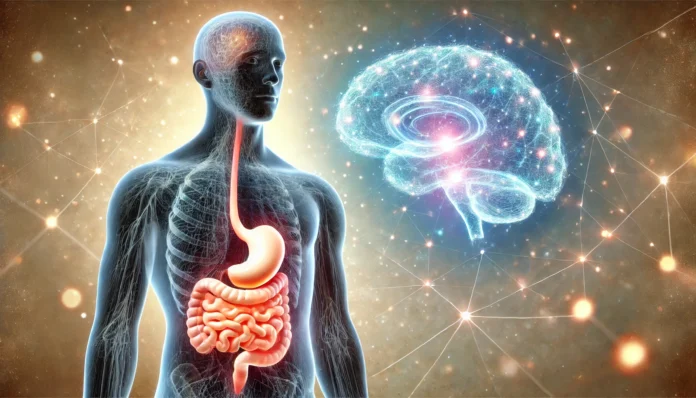The human body is a complex and interconnected system, with various organs and biological processes working in harmony to maintain overall health. Among these, the digestive system plays a crucial role not only in nutrient absorption and metabolism but also in supporting cognitive function and emotional stability. While it is widely recognized for its role in breaking down food and extracting essential nutrients, the digestive system also has profound effects on mental health and well-being. Understanding this intricate relationship can provide deeper insights into how dietary choices, gut bacteria, and digestive health influence mood, cognition, and mental resilience.
You may also like: How to Improve Gut Health Naturally: Science-Backed Tips for a Stronger Microbiome
The Digestive System: An Overview
The digestive system, also known as the gastrointestinal (GI) tract, is a network of organs responsible for processing food, extracting nutrients, and eliminating waste. This intricate system includes the mouth, esophagus, stomach, small intestine, large intestine, liver, pancreas, and gallbladder. Each component plays a distinct role in digestion, ensuring that the body receives the necessary vitamins, minerals, and energy to function efficiently. What many people fail to recognize, however, is that the digestive system is also home to a vast ecosystem of microorganisms known as the gut microbiome. These bacteria, fungi, and other microbes are not mere passengers; they actively contribute to digestion, immune regulation, and even mental health.
The Gut-Brain Axis: A Communication Superhighway
One of the most fascinating aspects of the digestive system is its direct connection to the brain. This bidirectional communication system, known as the gut-brain axis, facilitates constant interaction between the central nervous system and the enteric nervous system, which governs digestion. The vagus nerve, a primary conduit for this communication, allows signals to travel between the gut and the brain, influencing everything from hunger and satiety to mood and stress responses. Scientific studies have shown that disruptions in this axis can contribute to various mental health disorders, including anxiety, depression, and even neurodegenerative diseases. Understanding this intricate link highlights the significance of maintaining a healthy digestive system for overall mental and emotional well-being.
Interesting Facts About the Digestive System
Many people overlook the extraordinary capabilities of the digestive system, yet it possesses some truly remarkable features. For instance, the human gut contains more neurotransmitters than the brain itself, emphasizing its role in mood regulation. Additionally, the surface area of the small intestine is roughly the size of a tennis court, maximizing nutrient absorption. Another fascinating fact is that the gut produces around 90% of the body’s serotonin, a neurotransmitter critical for mood stability and happiness. These fun facts about the digestive system demonstrate its profound influence on both physical and mental health, highlighting the importance of maintaining optimal gut function.

The Role of the Gut Microbiome in Mental Health
The gut microbiome, consisting of trillions of microorganisms, plays an essential role in mental health. These microbes help produce neurotransmitters such as serotonin, dopamine, and gamma-aminobutyric acid (GABA), all of which regulate mood and cognitive function. Disruptions in the gut microbiome, caused by poor diet, stress, or antibiotic use, can lead to an imbalance known as dysbiosis. This condition has been linked to increased inflammation, impaired neurotransmitter production, and heightened susceptibility to mental health disorders. Recent research suggests that probiotics and prebiotics can help restore microbial balance, improving mental well-being and resilience to stress.
How Diet Influences Digestive and Mental Health
Diet plays a pivotal role in shaping gut health and, consequently, mental well-being. Foods rich in fiber, such as fruits, vegetables, and whole grains, support beneficial gut bacteria by serving as prebiotics. Fermented foods like yogurt, kimchi, and sauerkraut introduce probiotics that enhance microbial diversity. Conversely, diets high in processed foods, sugar, and artificial additives can promote inflammation and negatively affect gut health. Research indicates that a Mediterranean-style diet, rich in healthy fats, lean proteins, and fiber, supports both digestive and cognitive function, reducing the risk of depression and anxiety.
The Connection Between Gut Inflammation and Mental Disorders
Chronic gut inflammation is increasingly recognized as a contributor to mental health disorders. Conditions such as irritable bowel syndrome (IBS), Crohn’s disease, and ulcerative colitis often coexist with anxiety and depression. The inflammatory molecules released in the gut can cross the blood-brain barrier, triggering neuroinflammation and disrupting normal brain function. Addressing gut inflammation through dietary changes, stress management, and medical interventions can significantly improve mental health outcomes. This connection underscores the importance of adopting lifestyle habits that reduce inflammation and support overall digestive health.
Stress and the Digestive System
The relationship between stress and digestion is bidirectional. Chronic stress can disrupt gut motility, leading to conditions such as acid reflux, bloating, and constipation. Simultaneously, digestive issues can exacerbate stress and anxiety, creating a vicious cycle. Practices such as mindfulness, yoga, and deep breathing exercises have been shown to alleviate stress and improve gut function. By addressing both psychological and digestive health simultaneously, individuals can break this cycle and enhance their overall well-being.
Improving Gut Health for Better Mental Well-Being
Optimizing gut health requires a multifaceted approach that includes dietary modifications, stress management, and lifestyle changes. Regular physical activity has been shown to promote a healthy gut microbiome, while adequate sleep supports proper digestive function. Additionally, staying hydrated and avoiding excessive alcohol and caffeine consumption can enhance gut integrity. Incorporating fermented foods, fiber-rich meals, and healthy fats into daily nutrition can lead to lasting improvements in both digestive and mental health.

Frequently Asked Questions (FAQ): The Digestive System and Mental Health
How does the digestive system influence mental health beyond the gut-brain axis?
The digestive system impacts mental health through multiple biochemical and physiological pathways beyond the well-known gut-brain axis. For instance, the gut microbiome plays a crucial role in producing neurotransmitters such as serotonin and dopamine, which are essential for emotional regulation and cognitive function. Additionally, the inflammatory responses triggered by poor gut health can lead to systemic inflammation, which has been linked to depression and anxiety. Moreover, emerging research suggests that the gut influences the hypothalamic-pituitary-adrenal (HPA) axis, the body’s central stress response system. This means that chronic digestive disturbances could heighten stress sensitivity, making individuals more prone to mood disorders.
What are some fun facts about the human digestive system that many people don’t know?
One of the most fascinating fun facts about the digestive system is that it houses over 100 trillion bacteria, outnumbering human cells in the body. Another intriguing detail is that the stomach lining regenerates itself every three to four days to prevent damage from its acidic environment. The intestines collectively measure about 25 feet in length, allowing for maximum nutrient absorption. Additionally, the digestive system has its own nervous system, called the enteric nervous system, often referred to as the “second brain” because it can function independently of the central nervous system. Lastly, the body produces nearly two liters of saliva per day to aid in digestion and protect the mouth from bacteria.
How does the gut microbiome influence personality traits and emotional stability?
Recent studies suggest that the gut microbiome has a significant impact on personality traits and emotional stability. Researchers have found that individuals with a more diverse gut microbiome tend to exhibit greater emotional resilience and lower levels of stress. Certain bacterial strains, such as Lactobacillus and Bifidobacterium, are linked to positive mood regulation by modulating neurotransmitter activity. In contrast, an imbalance in gut bacteria, known as dysbiosis, has been associated with increased anxiety, irritability, and even neurodevelopmental disorders. As a result, dietary interventions that support gut health, such as consuming probiotics and prebiotic-rich foods, may indirectly enhance mood and emotional well-being.
Can digestive issues contribute to sleep disturbances?
Yes, digestive issues can significantly contribute to sleep disturbances due to their impact on hormone regulation and discomfort levels. For example, acid reflux and bloating can cause discomfort that disrupts deep sleep cycles. The gut also produces melatonin, the hormone responsible for regulating sleep, which means that an unhealthy digestive system may impair sleep quality. Furthermore, an imbalance in gut bacteria can trigger inflammation that affects the brain’s ability to maintain a healthy circadian rhythm. Addressing gut health through proper nutrition and stress management can therefore help improve sleep patterns and overall restfulness.
What role does fiber play in both digestion and mental health?
Fiber is essential for digestive health because it promotes regular bowel movements, supports beneficial gut bacteria, and reduces the risk of gastrointestinal diseases. However, its impact on mental health is equally profound. Fiber-rich foods serve as prebiotics, feeding beneficial gut microbes that, in turn, produce short-chain fatty acids (SCFAs) that help reduce inflammation and support brain health. Studies show that higher fiber intake is linked to lower rates of depression and anxiety, likely due to improved gut microbiome diversity and reduced systemic inflammation. Furthermore, fiber helps regulate blood sugar levels, which is crucial for maintaining stable energy levels and cognitive function throughout the day.
Are there any surprising ways that stress affects digestion?
Stress has a direct and often underestimated impact on digestion, influencing both the speed and efficiency of digestive processes. Chronic stress can lead to decreased production of stomach acid, resulting in slower digestion and nutrient malabsorption. It can also alter gut motility, leading to conditions like constipation or diarrhea, depending on individual responses. Additionally, stress-induced inflammation can weaken the gut lining, increasing the risk of conditions like leaky gut syndrome. Moreover, stress triggers cravings for unhealthy, highly processed foods, which can further disrupt gut health and negatively impact overall well-being. Implementing stress management techniques, such as mindfulness and breathing exercises, can help mitigate these effects.
How does hydration impact both digestive and mental health?
Hydration plays a crucial role in maintaining optimal digestive and mental health. Proper water intake ensures that the digestive system functions smoothly by facilitating enzyme activity and nutrient absorption. Dehydration can lead to constipation, making digestion sluggish and uncomfortable. On a mental health level, even mild dehydration has been shown to negatively affect concentration, mood stability, and cognitive performance. Drinking sufficient water throughout the day not only supports digestion but also enhances brain function, keeping energy levels and emotional well-being in check.
What are some cool facts about the digestive system related to evolution?
One of the coolest facts about the digestive system is that it has evolved over millions of years to adapt to diverse diets and environments. For instance, early human ancestors had longer intestines, allowing them to digest fibrous plant material more efficiently. As diets changed with the advent of cooking and meat consumption, the human digestive tract adapted, leading to a shorter, more efficient small intestine. Another evolutionary adaptation is the presence of gut bacteria that help break down complex carbohydrates that our bodies otherwise couldn’t digest. Additionally, the appendix, once considered a vestigial organ, is now thought to serve as a reservoir for beneficial gut bacteria, helping to repopulate the intestines after illness.
How does aging affect digestive health and its connection to mental well-being?
As individuals age, their digestive health undergoes significant changes that can impact mental well-being. The production of digestive enzymes and stomach acid decreases, leading to slower digestion and a higher risk of nutrient deficiencies. Additionally, aging is associated with a decline in gut microbiome diversity, which can contribute to increased inflammation and susceptibility to mental health disorders such as depression and cognitive decline. Constipation and reduced gut motility become more common, often due to decreased physical activity and hydration. To counteract these effects, older adults can focus on consuming probiotic-rich foods, maintaining a fiber-rich diet, and engaging in regular exercise to support both gut and brain health.
What are the best ways to naturally support gut health for long-term mental stability?
Supporting gut health naturally requires a comprehensive approach that includes dietary choices, lifestyle habits, and stress management. Consuming a diet rich in fiber, fermented foods, and healthy fats can significantly enhance gut microbiome diversity. Avoiding excessive processed foods, sugar, and artificial additives helps prevent inflammation that can negatively impact both digestive and mental health. Engaging in regular physical activity has been shown to promote a healthier gut microbiome by increasing beneficial bacteria. Managing stress through techniques like meditation, yoga, or deep breathing exercises is equally crucial, as chronic stress can disrupt gut function. By implementing these strategies consistently, individuals can maintain a balanced digestive system, leading to improved mood, cognitive function, and overall well-being.

Final Thoughts: A Holistic Approach to Health
The intricate relationship between the digestive system and mental health highlights the importance of a holistic approach to wellness. By understanding the profound impact of gut health on cognitive function and emotional stability, individuals can make informed choices to support both their digestive and mental well-being. Through balanced nutrition, stress management, and a focus on gut-friendly habits, it is possible to enhance overall health and achieve a greater sense of vitality and happiness. The fascinating facts about the digestive system serve as a reminder of its remarkable capabilities, reinforcing the need to prioritize digestive health for a thriving mind and body.
gut health benefits, digestive wellness, microbiome and mental health, gut-brain connection, probiotics for mental health, digestive system and stress, serotonin production in the gut, gut bacteria and mood, inflammation and mental health, fiber for gut health, prebiotic-rich foods, digestive enzymes and nutrition, gut-friendly diet, impact of stress on digestion, hydration and digestion, digestive disorders and anxiety, holistic gut health, healthy digestion tips, mind-gut relationship, nutrition for mental clarity
Further Reading:
The Gut-Brain Connection: How Digestion Impacts Mental Health
How Does Your Gut Microbiome Impact Your Overall Health?
Gut microbiota’s effect on mental health: The gut-brain axis
Disclaimer
The information contained in this article is provided for general informational purposes only and is not intended to serve as medical, legal, or professional advice. While Health11News strives to present accurate, up-to-date, and reliable content, no warranty or guarantee, expressed or implied, is made regarding the completeness, accuracy, or adequacy of the information provided. Readers are strongly advised to seek the guidance of a qualified healthcare provider or other relevant professionals before acting on any information contained in this article. Health11News, its authors, editors, and contributors expressly disclaim any liability for any damages, losses, or consequences arising directly or indirectly from the use, interpretation, or reliance on any information presented herein. The views and opinions expressed in this article are those of the author(s) and do not necessarily reflect the official policies or positions of Health11News.


